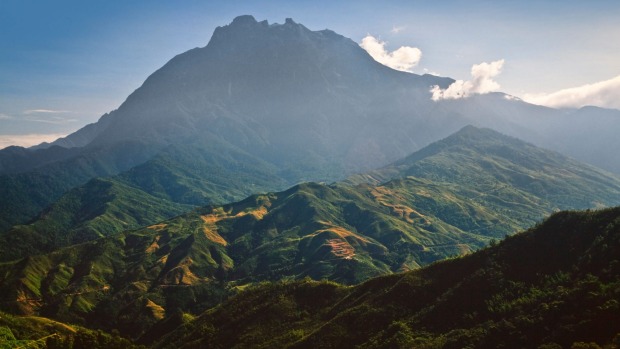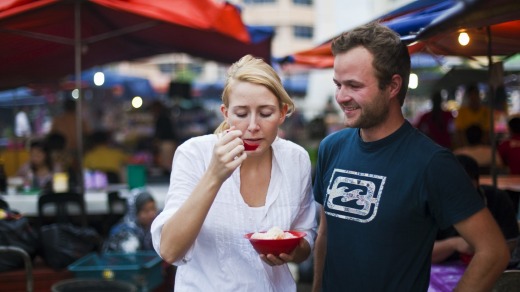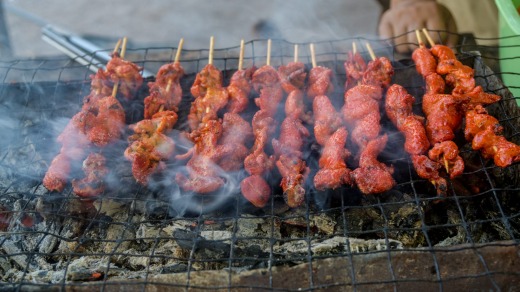
It starts raining about halfway back to the hotel from Sabah's Mount Kinabalu, the volcano-shaped peak known locally as the resting place of dead souls – and on which, a few days later, 16 unlucky souls would lose their lives when a 5.9-strength earthquake shook the region.
It's a tropical downpour, of course, and a regular afternoon occurrence here in the rollercoaster, jungle-clad Malaysian foothills of the 4095-metre mountain but which, much to the irritation of the seaside hoteliers, never seems to make it to the parched coast.
Banks of bulbous storm clouds – thunderheads, the Americans call them – have been building all day, the air gradually getting thicker and warmer and wetter, but it is still somehow a shock when it breaks so fiercely.

Suddenly the serpentine road is a stream and the windscreen of our minibus is being assaulted by great explosive marbles of water through which it is difficult to see. Our driver turns the wipers up to 11 and the guide decides it's a good time to pull over at one of the wild boar food stalls that litter the roadsides here.
On the way up I'd asked about the many ramshackle, corrugated iron-roofed huts with their hand-painted Sinalau Bakas signs. There are nearly as many of them as there are Catholic churches.
The meat is most often marinated in salt, garlic and vinegar before being smoked.
Made of mismatched bits of hammered wood and populated with equally incompatible tables and plastic chairs, the stalls were wreathed in clouds of grey-blue smoke that somehow wormed its way into our airconditioned comfort and made us salivate. Well, not the vegetarians among us, obviously.

Sinalau Bakas simply means smoked wild boar, a traditional Sabahan delicacy, if you can call great hulking lumps of dead wild pig smoking on a makeshift wire barbecue delicate.
I have been a devotee of wild boar ever since coming across a boar pate and steaks in the massif central of southern France, where such animals still roam, so a chance to sample this new version wasn't to be missed.
It's like an amateur drummers' convention under the aluminium roof as the rain beats noisily down upon it and we take to the plastic seat off to one side while our guide orders a few samples from the sweaty, bemused men cooking and smoking behind the barbecue counter.
Off to one side sits a woman at a table, making satay skewers while three of the scabbiest, mangiest dogs you're ever likely to see lounge around the packed earth floor scratching and worrying a boney, skittish kitten.
Next to us there is a deep, square pit in which a dozen or so tilapia dart around a rough-and-ready home-made aquarium. "Surf and turf?" asks someone (not the vegetarians as they have refused to get out of the minibus).
The wild boar, we are told, is sourced from further over on the east coast as there are few to be had locally thanks to the paddy fields and palm oil plantations that cover so much of the area. According to our guide, the unidentifiable chunks of meat that are smoking – and have been for many hours – over glowing wood from local rubber trees have been basted with oyster sauce.
Later I learn that the meat is most often marinated in salt, garlic and vinegar before being smoked. The oyster sauce, if used at all, is added just before a final, swift grilling.
Usually, the boar is served with rice and soup, and accompanied by a chilli paste but, having just had lunch, we make do with the meat itself (for 10 ringgit – about $3.50), which is gorgeously lean – there's almost no fat – and chewy. The smoky, gamey flavour of the meat is perfect with a little of the chilli sauce.
It is moreish in the extreme and eventually I have to be dragged away, still sucking on a splinter of bone, and thrown back to the minibus where the vegetarians sit smugly chewing their nails.